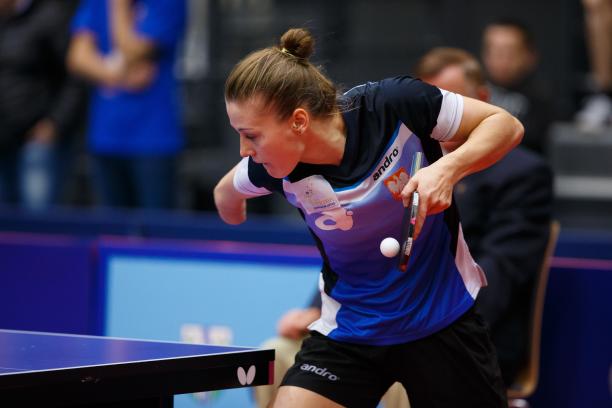Sport Week: Classification in table tennis
14.06.2016Athletes are allocated 11 sport classes, and can compete either in a wheelchair or standing.
 Poland's Natalia Partyka now has seven European titles to her name
© • Morten Olsen
Poland's Natalia Partyka now has seven European titles to her name
© • Morten Olsen
- Related News
- Sport Week: Introduction to table tennis
In table tennis, players with physical impairments compete in sport classes 1-10 and athletes with an intellectual impairment compete in sport class 11.
Athletes in the sport classes 1-5 compete in a wheelchair and athletes in sport classes 6-10 compete standing.
Sitting classes
Class 1: Players have no sitting balance and a significantly affected playing arm, for example due to tetraplegia. They would often support their sitting balance with the non-playing arm.
Class 2: Players in this sport class also have no sitting balance, and their playing arm is moderately affected. Like the players in sport class 1, they tape the racket to the hand to make up for limited grip function.
Class 3: Players have full hand and arm function. With their good arm function, they can maneuver the wheelchair while maintaining good balance of their upper body. The athlete’s impairment may result from spinal cord injuries or neurological conditions, such as cerebral palsy.
Class 4: Athletes have some sitting balance and fully functional arms and hands. They can move to the front to meet their opponent’s serve.
Class 5: This sport class includes athletes who compete in a wheelchair, and have normal sitting balance, arm and hand function. With the good trunk function, they can stretch out to the sides to hit the ball. The sport class includes athletes with lower spinal cord injuries.
Standing classes
Class 6: Players have impairments affecting both arms and legs and play standing. The sport class includes, for example, athletes with ataxia, athetosis or hypertonia which affects the legs and the playing arm. These impairments impact the balance and the quality of strokes.
Class 7: Athletes either have significant impairments of both legs or the playing arm, or impairments affecting arms and legs moderately. For example, a player with an amputation of both arms above the elbow could compete in this sport class.
Class 8: Athletes with moderate impairment of their legs or moderately affected playing arm compete in this sport class. An athlete with muscle weakness in one leg due to polio would for example compete in this sport class.
Class 9: Players have mild impairments affecting the legs or the playing arm. Athletes with a stiff knee or restricted elbow of the playing arm compete in this sport class. Also, athletes who have significant impairments in the non-playing arm compete in this sport class. This will impact serving the ball.
Class 10: Players in this sport class have relatively mild impairments, such as a stiff ankle or wrist of the playing arm. Players with short stature may also play in sport class 10.
Intellectual impairment
Class 11: Table tennis players with an intellectual impairment typically have difficulties with: pattern recognition, sequencing, and memory, or having a slower reaction time, which all have an impact on table tennis skills, tactics and performance.
Eligible impairments
Impaired muscle power
Athetosis
Impaired passive range of movement
Hypertonia
Limb deficiency
Ataxia
Leg length difference
Short stature
Intellectual impairment
Helpful links
Editor’s note: Each sport on the Rio 2016 Paralympic programme will have a dedicated week of featured content published on paralympic.org. Every week a new sport will be featured and the series will run until September’s Games, helping the public understand more about the 22 sports being contested in Rio.
__
Sport fans from around the world can now buy their Paralympic tickets for Rio 2016 from authorised ticket resellers (ATRs)
The IPC’s Global ATR is Jet Set Sports, and Rio 2016 tickets and packages can be purchased on the CoSport website.
Residents of Brazil can buy 2016 Paralympics tickets directly from the Rio 2016 website.



















